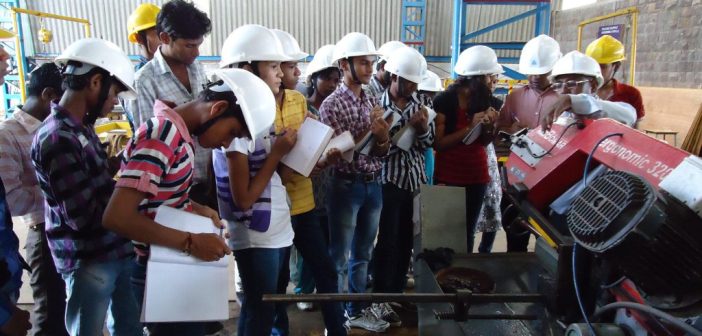India’s apprenticeship ecosystem is witnessing unprecedented momentum, establishing itself as a key driver of workforce transformation, according to a report released on Tuesday. The country achieved a record-high Net Apprenticeship Outlook (NAO) of 76% during Q1 2024-25 (Jan-Mar), an 8% increase from the previous Oct-Dec 2023-24 period, as revealed by TeamLease Degree Apprenticeship, a supply chain organization that facilitates the creation of a skilled entry-level workforce.
This historic rise in NAO reflects a fundamental shift in employer sentiment, with businesses increasingly recognizing apprenticeships as a strategic tool for talent acquisition, cost-effective hiring, and industry sustainability.
“The rise in apprenticeships is driven by strategic workforce planning, cost-efficient hiring, and a focus on enhancing gender diversity,” said Sumit Kumar, Chief Strategy Officer at TeamLease Degree Apprenticeship.
The trend is being led by large enterprises (85%, up from 77%) and medium-sized businesses (77%, up from 71%), with all categories of businesses seeing a boost in apprenticeship adoption.
Government initiatives such as Make in India, the Production Linked Incentive (PLI) schemes, and increased academia-industry collaboration have accelerated this growth. These efforts have enabled employers to recognize the business benefits of apprenticeships in closing skill gaps, boosting productivity, and optimizing long-term workforce costs, Kumar said.
The report noted that the record-breaking growth is driven by the rising prominence of sunrise industries, which are spearheading a new era of workforce development. The drone industry leads with an unparalleled 86% NAO, followed closely by the EV and mobility sector with a robust 75% NAO.
Global Capability Centers (GCCs), with a 79% NAO, are also leveraging apprenticeships to strengthen their talent pipelines and drive operational excellence in the global business landscape.
Hyderabad, Nagpur, Chennai, Indore, Pune, and Bengaluru have emerged as frontrunners, setting new benchmarks for apprenticeship engagement. About 75% of organizations are now consistently absorbing apprentices into permanent roles post-training, acknowledging the effectiveness of structured skilling programs in building a job-ready workforce.
“The increasing focus on women’s participation in sectors like solar and semiconductors signals positive change towards a more inclusive workforce,” Kumar added.





